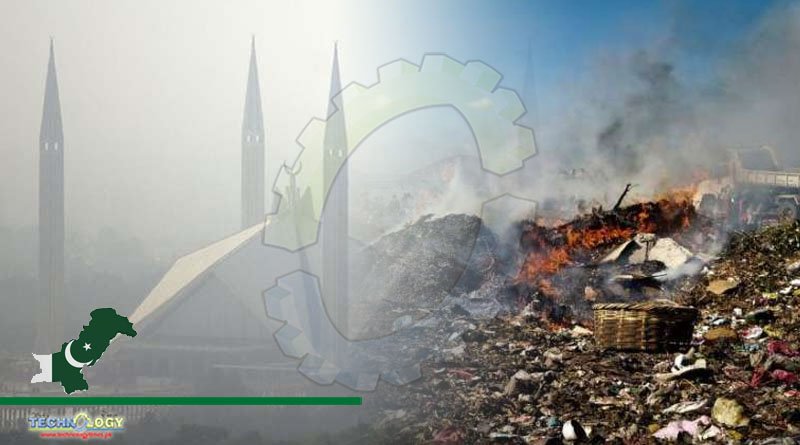The federal capital is currently threatened by smog due to rising pollution and prolonged dry weather, as well as massive traffic congestion caused by mega road infrastructure projects.
The air quality of the federal capital Islamabad, on Monday was recorded as very unhealthy as the fine particulate matter, the most hazardous ambient pollutant, was persisting at a very large scale due to increased dust, solid waste burning, and massive roadside construction.
The federal capital is currently threatened by smog due to rising pollution and prolonged dry weather, as well as massive traffic congestion caused by mega road infrastructure projects underway in the capital’s east and south.
Smog is a major risk in cities across the country due to massive farmland stubble burning, brick kilns, vast swaths of vehicular fleets emitting dark smoke, waste burning, massive industry spewing smoke and gases, and other anthropogenic activities that cause the fog moisture to be converted into a thick cloud of smoke after the reaction. It reduces visibility, causes eye burning, causes respiratory illnesses, and causes other health complications that endanger human survival.
The federal capital had a well-kept industrial zone with a cluster of steel mills that had installed carbon-absorbing reverse bag technology to collect dark carbon in the factory stacks and keep the environment clean.
Moreover, there were some 60 brick kilns near the federal capital, out of which 50 have adopted eco-friendly zigzag technology, whereas the rest were in the process of adopting modern technology to contain dark smoke that causes serious air pollution and smog.
However, the federal capital’s rising and swarming vehicular traffic and urbanisation have made bad air a new normal for residents during dry and cold weather, increasing the risks of smog.
In collaboration with the Islamabad Traffic Police, the Pakistan Environmental Protection Agency (Pak-EPA) is visiting various industrial units and vehicles emitting dark smoke to ensure proper maintenance of cars and fine those emitting black smoke despite warnings.
The Capital Development Authority (CDA) Helpline 1819 was receiving public complaints about the burning of solid waste, which was causing serious pollution, and was taking action to ensure a clean and smoke-free environment.
With PM2.5 readings of 105.3 μg/m³ and 104.6 μg/m³) it still stands to reason that the air quality in Islamabad is by no means safe, and would cause a large number of issues for its inhabitants, particularly those who belong to vulnerable demographics such as young children, the elderly or those with preexisting health conditions or compromised immune systems.
